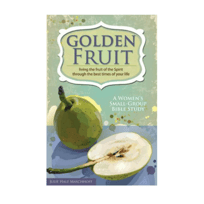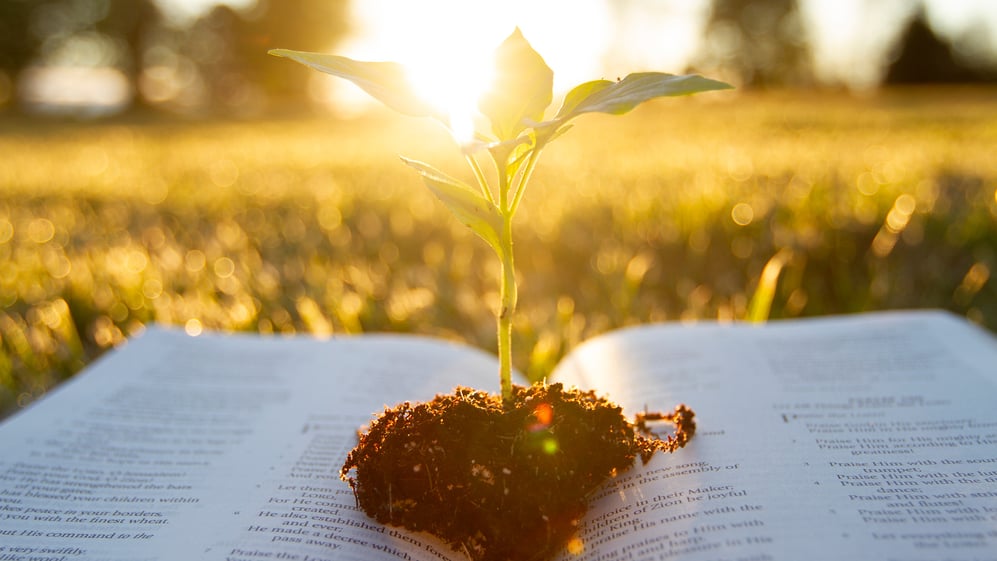When I taught an English as a Second Language class at my church, I often ran into a challenge. A student would ask me what a particular word meant, and even though I knew the word, I struggled to describe its meaning without using the same word. The word itself embodied the meaning for me; I could feel and know the meaning but could not put it into different words. It was just … itself. (Luckily for my students, online dictionaries came to my rescue!)
That’s also the case with “goodness,” one of the fruits of the Spirit listed by Paul in his letter to the Galatians:
But the fruit of the Spirit is love, joy, peace, patience, kindness, goodness, faithfulness, gentleness, self-control; against such things there is no law. Galatians 5:22-23
Goodness, of course everyone knows what “goodness” is. Goodness is … good. It’s the opposite of evil. But doesn’t the word goodness seem to encompass the fruit of the Spirit? Love, joy, peace, patience, kindness, gentleness, and self-control could be described as good. Why does Paul single goodness out as a separate virtue?
New Life
As an educated Jew, Paul knew and read the Torah in Hebrew, even though he wrote in Greek. The word for good in Hebrew (transliterated) is tov. From Genesis 1 forward, tov is used hundreds of times throughout the Old Testament. It has a rich meaning, far more descriptive and specific than how our English word good has come to be used today.
Tov is not just the absence of evil or just doing the right thing (although it includes those meanings). As used in several places in the Old Testament, tov refers to growth and life that then leads to more growth and life. Goodness grows, blossoms, and then drops seeds into the soil to bring forth new life and growth. Goodness begets more goodness. It is expansive.
This mental picture of goodness differs from how I frequently have thought of goodness, which is a simplistic notion of staying away from sin and evil. Goodness is not only purity, although it may include it. The tov picture of goodness doesn’t center on pulling away from sin but on growing and expanding, perhaps pushing sin and evil away. If we picture sin as a rotting log on the forest floor, goodness is the lush green vegetation that grows over it, obliterating the rot in new growth and life.
God Is Good
Goodness is an attribute of God; indeed, God is completely good, and He is the origin of all goodness in creation. Of the many references to the goodness of God in the Bible, Exodus 33 stands out to me. After God brought the Israelites out of Egypt, after they betrayed God by making and worshiping a golden calf, God declared that He would withdraw His presence from them. Moses pleaded with God not to abandon His people in the wilderness, and God agreed to stay with them. Then Moses asked for some reassurance.
Moses said, “Please show me Your glory.” And He said, “I will make all My goodness pass before you and will proclaim before you My name ‘The LORD.’ ” Exodus 33:18–19
Moses asked God to show him His glory, but God instead said He would show Moses His goodness. In proclaiming His name to Moses at the same time, God made His name synonymous with goodness.
Experiencing glory can seem much more exciting and attractive than experiencing goodness. Many an unhealthy, sinful human has abandoned goodness in a quest for glory. But in this account, God, who has perfect glory and perfect goodness, chose to restrain His glory so that Moses could see His goodness. In that moment, when Moses might have despaired at the sin of God’s people and the anger of God, the goodness of God gave Moses new hope and a new start. Goodness grows like a dandelion up through a crack in a sidewalk.
Seeds and Fruit
Jesus told many parables using seeds, grain, fruit, and all manner of growing things. His Spirit works through the Word and Sacraments to maintain good soil, in which the seeds of the Gospel can take root and grow. We read of faith like a mustard seed, which grows up into such a fruitful plant that it serves as a haven for birds. The goodness of Jesus drew others to Him for healing and forgiveness, and His life, death, and resurrection planted the seeds of goodness in His followers. When the Spirit nourishes those seeds and makes us fruitful, that good fruit in turn nourishes those around us. Our good God comes to us in His Sacraments and Spirit and makes us good. As we flower and grow in the light of God’s goodness, we get the privilege of planting and nurturing the seeds of goodness in our children, friends, neighbors, and coworkers. Goodness grows like an aloe plant, continually making offshoots that take root in the good, good soil.
Scripture: ESV®.
 Each session in Golden Fruit focuses on one of the fruit of the Spirit and considers how the life and story of one of nine biblical women convey that characteristic.
Each session in Golden Fruit focuses on one of the fruit of the Spirit and considers how the life and story of one of nine biblical women convey that characteristic.













